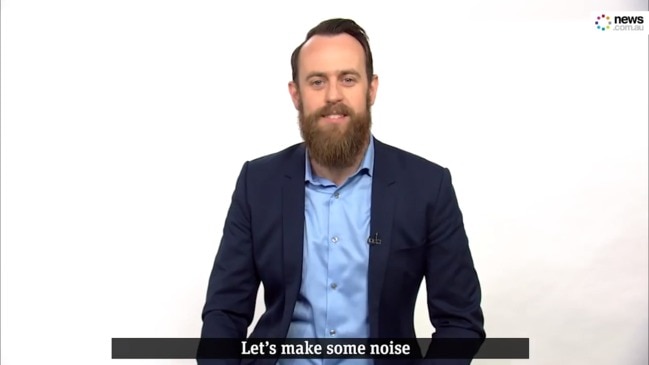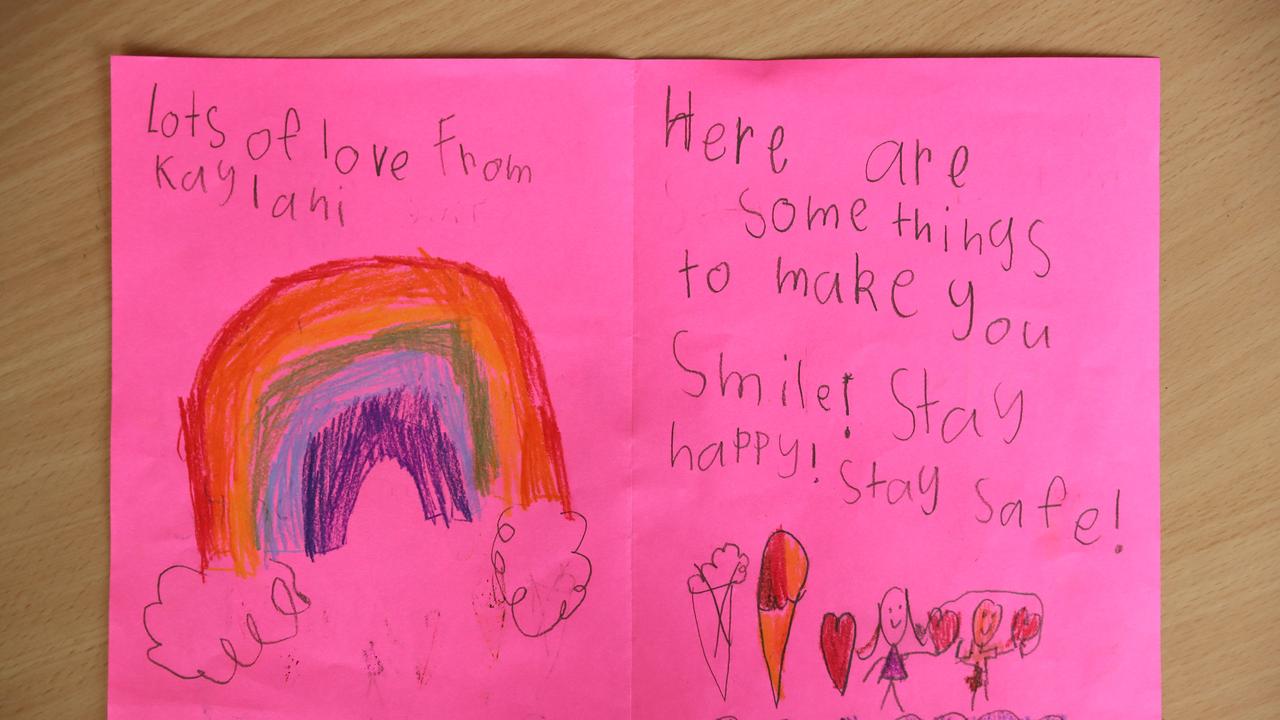Why men need to be able to open up to each other
THERE’S something women are naturally better at but that men need to start doing more of.

IT’S the one thing women complain about it — men not being able to open up.
But experts say our belief that men are bad communicators is actually wrong.
“There’s an assumption men can’t and won’t talk,” says clinical psychologist Dr Simon Rice.
“That’s not true. If the environment is safe, and they don’t feel judged, ridiculed and humiliated, they can.”
Dr Rice, of Orygen, the National Centre of Excellence in Youth Mental Health, said the first point of contact when a man sought help — whether it be in a clinical setting or more relaxed — was critical.
When it comes to a relaxed setting and getting men to open up to their mates, Dr Rice said often all they wanted was an ear.
“It’s about being respectful, listening closely and not jumping in with solutions,” he said.
“Some people know things are s**t, there’s not necessarily a solution, so it’s not about a solution. It’s just about being heard.
“In that first instance you just want to be validated.”
News.com.au is highlighting men’s mental health issues as part of its campaign The Silent Killer: Let’s Make Some Noise in support of Gotcha4Life and Movember.

Gotcha4Life is runs programs dedicated to educating young men about resilience and the importance of friendships, also training more men to be counsellors so others can turn to them in crisis.
Dr Rice, senior research fellow at The University of Melbourne, said even just opening up a conversation was great and then men could check in and see how their friend was travelling.
Preferably this is better done away from the pub or without too much alcohol.
“If you can get away from the pub and the alcohol-soaked conversations I think that’s a good thing,” he said.
Dr Rice said for some men that might be a bit full on but it was about warming up and follow-up conversations.
He commended sporting starts and athletes such as Sydney Roosters star James Tedesco who have opened up about their mental health struggles.
The Grand Final fullback also said alcohol fuelled conversations were best avoided.
“It just makes you feel worse about yourself,” he said.
“Whenever I go out and have a few drinks, I don’t think there’s any shame at being at the pub and having a water, especially if you’re comfortable around your mates or your close friends.
“You can still have a good time at the pub without drinking.”
Tedesco, who suffered injury blows in 2015 when he was with the West Tigers, said it was important to be around positive friends and family who could lift your mood and who you could relax and have a laugh with.
“It’s about having those close people that you know will listen to you and care for you,” he said.
He said he sought out a mentor in 2015 he spoke to every week for a year and then played every game without injury.
Still talking to the mentor today, he said it was good to get stuff off your chest in a video for youth mental health organisation Headspace.

“If I was a young kid I sort of wouldn’t talk to anyone and sort of bottle it up,” he said.
Jonathan Nicholas, managing director of the Wellbeing Outfit, said services needed to adjust to suit young men who did not want to talk.
“Part of the challenge is not getting all of these young men to change but how we can change the service, how we can help young men in ways they want,” he said.
“If you’re going through a tough time almost anyone will tell you to go and talk to someone but if the answer is I don’t want to talk to someone then they can become more and more isolated.”
Mr Nicholas is a finalist for the Australian Mental Health Prize for his work in the sector.
Dr Rice said there was a lot of stigma around seeking help and men’s masculinity.
“There’s still an emphasis on men not showing vulnerability, weakness, having everything together, being very stoic, in control and dominant,” he said.
“If that’s how they need to be it makes it hard to put their hand up and say I’m experiencing mental health issues, I need to speak to someone.”
He said better communicating what the therapy process was about was important because it was so misunderstood.
Dr Rice said men were put off by the idea of laying down and having someone delve into their inner thoughts but that was not the case at all.
He said rather than focus on pathology and problem experiences, it was important to recognise someone was having symptoms but focus on their strengths and how they can put some of them into practise.
Dr Rice said some men can gravitate towards a change in language, so calling it “coaching” instead of “therapy”, and discussing ways to “improve your performance” rather than “getting help” could make a difference..
“You see a PT at the gym when you’re trying to get on top of your fitness so wouldn't you see someone to get guidance around your relationships?” he said.
Dr Rice said there was societal pressure for men to have particular attributes.
While there were other factors that contribute to suicide, Dr Rice said the leading cause was depression.
However, females were twice as likely to be diagnosed with depression than men.
Dr Rice said research was looking at new ways to identify men at risk, who could be showing other signs such as getting angry, partaking in risk taking behaviour or suppressing their emotions.
His research is looking at using a social media platform to get young men support and to open up online without stigma.
If you or someone you know needs support with their mental health, please contact one of these support organisations:
• Lifeline 24/7: 13 11 14 or www.lifeline.org.au
• Suicide Call Back Service: 1300 659 467 or www.suicidecallbackservice.org.au
• MensLine Australia: 1300 78 99 78 or www.mensline.org.au




